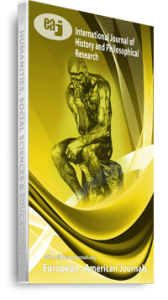The essential thought of Eudaimonia prescribes for an intellectual platform in Greek philosophy towards the ultimate happiness in human life; hence, it necessarily intends to emphasise a vast array of moral components such as voluntary actions, internal goods and external goods, capacities and cognitive functions, practical reason, as well as mindfulness or sensory awareness. In addition to these prominent features of Eudaimonia, it certainly demonstrates a few contextual meanings: satisfaction, inner contentment, well-being, and wholesome. In fact, it has commonly been assumed that there appears to be a significant ground for the eternal essence of human life, too. Then, this analytical article explores to what extent the Aristotelian attitude of Eudaimonia could be credible? With regards to this debatable issue, I will, arguably, discuss very limited findings in terms of theoretical and pragmatic applicability of Eudaimonia: the central thesis of Eudaimonia, the analysis of De Anima, the discourse of the mean alongside the role of phronesis. However, due to practical constraints, this paper cannot provide a comprehensive overview of Aristotle’s understanding of Eudaimonia.
Keywords: aristotle’s understanding, critical analysis, eudaimonia credible

